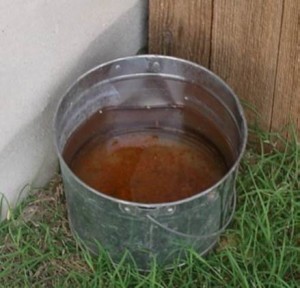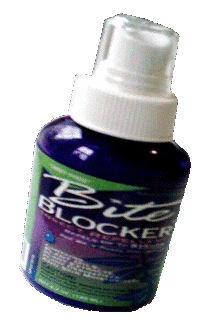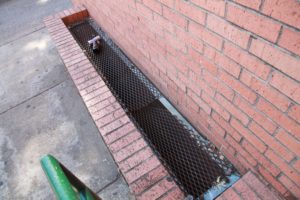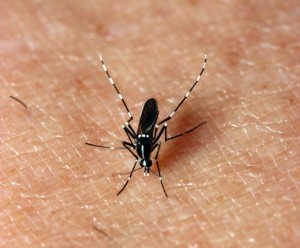
Any temporary body of water that is present for more than a week can be a mosquito breeding habitat.
The most effective strategy for the community in general is prevention; consider the following:
- Check flowerpots and other containers for excess water.
- Flush out the water in birdbaths and fountains every few days.
- Store boats, canoes and other objects upside down, so that they do not collect rainwater.
- Remove water that collects in depressions in tarpaulins covering boats and other equipment or objects. Rinse off water collecting on backyard trampolines and other items.
- Keep rain gutters free of leaves and other debris that prevent water from raining.
- Correct drainage problems in yards and playing fields to prevent rain and irrigation water from pooling for prolonged periods; report drain problems in ditches or along roadways.
- Fill holes or depressions in trees with sand.
- Repair leaky pipes and outside faucets, and connect open wastewater drains to a sewage system or construct separate sump or leach lines.
- Empty water containers for pets and check livestock watering troughs and tanks, or add Gambusia (mosquito eating fish).
- Larvacides: mosquito “dunks” use bacteria (Bti) that is harmless to humans, pets and the environment. Dunks will effectively kill mosquito larva in any breeding (nonconsumptive) water source.

This fine mesh suit will keep you cool, but mosquito free.
Avoiding Mosquito Bites
- WEAR loose fitting long-sleeves, long pants, and socks when outdoors. Mosquitoes may bite through thin clothing, so spraying clothes with repellent adds an additional protection layer.
- APPLY Insect Repellent Even if you are outside for just a short period of time. Approximately 40% of people confirmed to have WNV have no recollection of being bitten by mosquitoes.
- Use a DEET product or a good non-DEET alternative (Bite Blocker or Off Botanicals), and if you are outside for more than a few hours reapply repellent. The higher the temperature the more frequently you must reapply repellent for it to be effective.

Mosquito repellents come in all shapes and sizes.
Tips for Applying Repellents
- Apply repellents only to exposed skin and/or clothing (as directed on the product label). Do not use under clothing.
- Never use repellents over cuts, wounds, or irritated skin.
- Do not apply to eyes and mouth, and apply sparingly around ears. When using sprays do not spray directly onto face; spray on hands first and then apply to face.
- Do not allow children to handle the products, and do not apply to children’s hands. When using on children, apply to your own hands and then put it on the child.
- Do not spray in enclosed areas. Avoid breathing a repellent spray, and do not use it near food.
- After returning indoors, wash treated skin with soap and water or bathe. If you suspect that, you or your child is reacting to an insect repellent, discontinue use, and wash treated skin.

Areas located on school buildings can become the perfect place for pests to thrive. Make sure these areas are maintained annually.
Mosquito-Proof Your Home and Yard
- Drain Standing Water: Mosquitoes lay their eggs in standing water. Limit the number of places around your home for mosquitoes to breed by getting rid of items that hold water.
- Install or Repair Screens: Some mosquitoes like to come indoors. Keep them outside by having well-fitting screens on both windows and doors. Offer to help neighbors whose screens might be in bad shape.
- Check for Indoor Breeding Sites: If a female mosquito wonders inside your home she will utilize any water reservoir she can find. Check for wriggling larvae in the toilet cisterns that are not flushed daily. Maintain water in drain traps. Use sticky tape over floor drains, sink over flows, etc. to see if you can catch mosquitoes emerging from areas you cannot see.

The Aedes albopictus or Asian tiger mosquito.
After Bite Care: Several strategies exist for relieving the itch of mosquito bites.
- The first step is the clean the bite area with soap and water. Topical corticosteroids can reduce the rash, itching, and discomfort. Topical diphenhydramine and caine-containing derivatives should be avoided because of concerns about inducing allergic contact sensitivity.
- Oral antihistamines can be effective in reducing the symptoms of mosquito bites.
- Use of a cold compress can be helpful, but do not apply ice directly to the skin (use a towel or cloth between ice and skin to prevent
